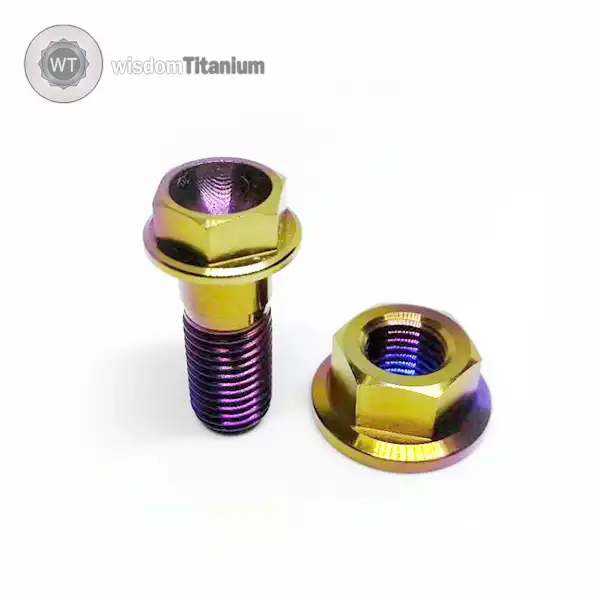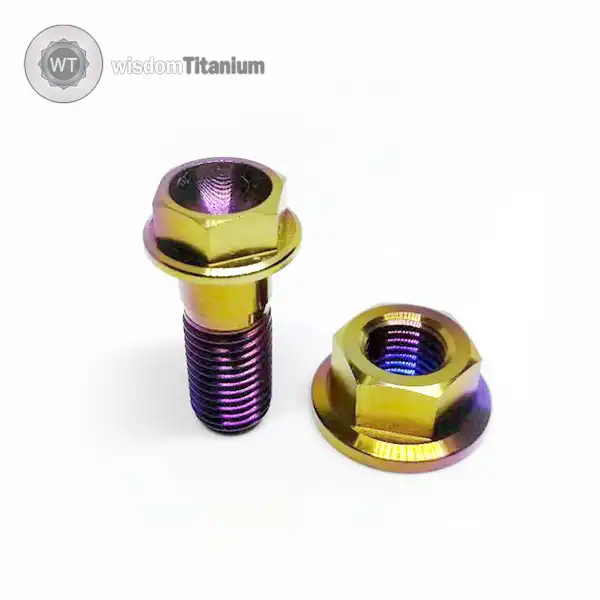
The science of engineering and structural disciplines are constantly looking for polymers that combine durability, strength, and lighter weight characteristics. Choosing the right kind of nuts and bolts, such as bolts, is of the utmost importance for guaranteeing the long-term reliability and efficiency of relatively small building materials. Among the array of materials available, titanium hex head bolts emerge as a standout choice. In the following article, I examine the characteristics, positive effects, and uses of the products as I dig into the rationale provided by science for their use in very portable building construction.
Understanding Titanium
Due to its remarkable strength-to-weight ratio, titanium is a transition metal that is especially suited for situations requiring both high performance and ultralight traits. The combination of its impressive strength and low density makes titanium an ideal material for a wide range of engineering projects. Titanium resists corrosion better than traditional substances like aluminum or stainless steel, offering sturdiness and dependability in a broad range of scenarios.
Titanium's incredible authority, which preserves its structural integrity intact even under stressful conditions, is one of its main features. Titanium is a portable, very durable material that finds usage across many industries where minimizing weight is critical without compromising toughness.
On top of that, titanium is unlike a number of other metals due to the way it is resistant to weathering. Due to titanium elements are capable of preventing corrosion, specifically in harsh environments, they last longer and demand fewer upkeep tasks than elements crafted from other types of metal. To account for this, titanium is a budget-friendly substitute for scenarios in which consistency and endurance are mandatory.
All things considered, titanium is a favored material in a variety of industries, such as aerospace, automobiles, medical, and athletic footwear, due to its extraordinary strength, lightweight nature, and outstanding resistance to corrosion. Titanium's outstanding attributes and flexibility are anticipated to spur more development and research efforts into its possible uses as advances in technology occur.
The Superiority of Hex Head Bolts
Hex head bolts, characterized by their hexagonal heads and threaded shafts, offer distinct advantages over other fastening options. The hexagonal shape provides multiple flat surfaces for wrenching, enabling secure tightening and preventing slippage during installation. This design feature enhances the efficiency and reliability of fastening operations, crucial for the structural integrity of lightweight assemblies.
Advantages of Titanium Hex Head Bolts
-
Lightweight: Titanium's low density imparts a significant weight advantage to hex head bolts made from this material. In applications where weight reduction is paramount, such as aerospace and automotive industries, the use of titanium bolts contributes to overall weight savings without compromising structural integrity.
-
Exceptional Strength: Despite its lightweight nature, titanium exhibits remarkable strength properties. Titanium hex head bolts offer exceptional tensile strength, ensuring robust performance under extreme conditions. This inherent strength allows for the use of smaller diameter bolts without sacrificing load-bearing capacity, further contributing to weight reduction efforts.
-
Corrosion Resistance: Titanium's innate resistance to corrosion is a standout feature, particularly in harsh environments where exposure to moisture, chemicals, or salt is prevalent. Unlike steel bolts, which are susceptible to rust and corrosion, the products maintain their integrity over extended periods, reducing the need for frequent maintenance and replacement.
-
Temperature Stability: Titanium exhibits excellent thermal stability, retaining its mechanical properties across a wide temperature range. This characteristic makes the product suitable for applications exposed to fluctuating temperatures, such as aircraft engines or industrial machinery.
-
Non-Magnetic Properties: In certain applications where magnetic interference is undesirable, such as electronic equipment or medical devices, the non-magnetic nature of the product offers a distinct advantage over ferromagnetic materials like steel.
Applications of Titanium Hex Head Bolts
The versatility and performance of titanium hex head bolts find applications across various industries:
- Aerospace: Titanium's combination of strength and lightness makes it indispensable in aerospace applications, where every gram of weight saved translates into enhanced fuel efficiency and payload capacity. Titanium hex head bolts secure critical components in aircraft structures, engines, and landing gear assemblies.
- Automotive: In the automotive sector, where the pursuit of fuel efficiency and performance is relentless, the products find utilization in engine components, suspension systems, and chassis assemblies. Their lightweight nature contributes to improved handling and acceleration while maintaining structural integrity.
- Marine: The corrosion-resistant properties of titanium make it an ideal choice for marine applications, where exposure to saltwater can accelerate corrosion in traditional materials. The products secure vital components in marine vessels, offshore platforms, and underwater structures, ensuring long-term reliability in harsh maritime environments.
- Medical: Titanium's biocompatibility and corrosion resistance make it a preferred material for medical implants and devices. Titanium hex head bolts play a crucial role in orthopedic implants, dental prosthetics, and surgical instruments, providing secure fixation without the risk of allergic reactions or tissue rejection.
- Industrial: Across various industrial sectors, the products serve in critical applications where strength, corrosion resistance, and reliability are paramount. From chemical processing plants to renewable energy installations, titanium fasteners contribute to safety, efficiency, and longevity of equipment and structures.
Conclusion
To sum up, choosing the right kind of fasteners for lightweight building materials is a significant decision with implications for life expectancy, how they perform, and security in a major manner. Titanium hex head bolts are an outstanding instance of a desirable option; they give users an alluring blend of extraordinary strength, ability to withstand deterioration, lightweight design, and flexibility in a wide range of settings. Titanium is the construction element most commonly used for difficult engineering obligations, whether in the aerospace, automotive, aquatic, healthcare, or commercial domains of study.
Please send an email to sales@wisdomtitanium.com with any inquiries that you think you might have about the products in question.

References
-
"Titanium: Physical Metallurgy, Processing, and Applications" by F.H. Froes and J.L. Murray
-
"Titanium in Medicine: Material Science, Surface Science, Engineering, Biological Responses, and Medical Applications" by F.H. Froes and M. Niinomi
- "Titanium Alloys: Advances in Properties Control" edited by E.S. Witte, U. Glatzel, and M. Schütze





